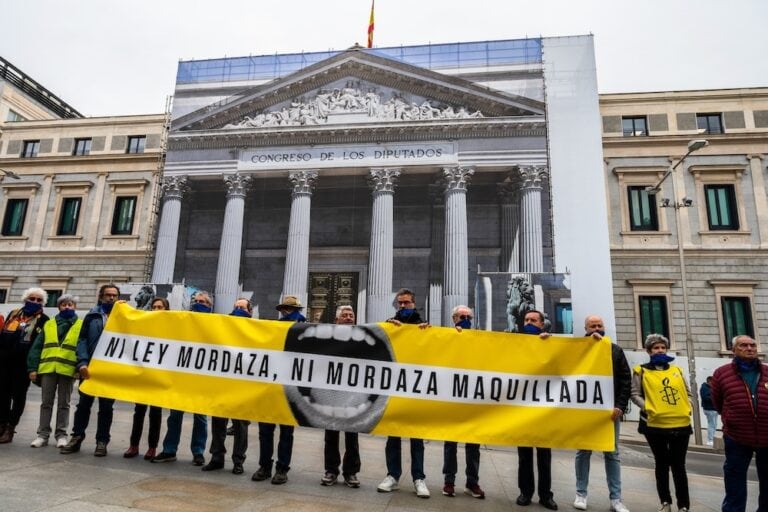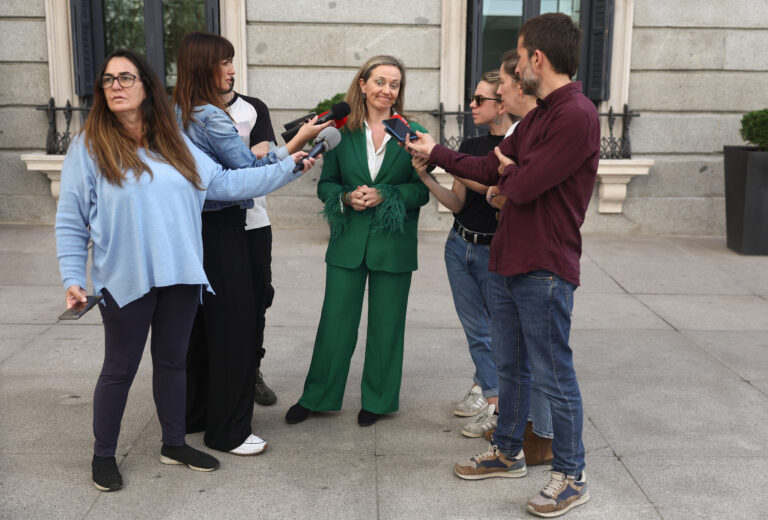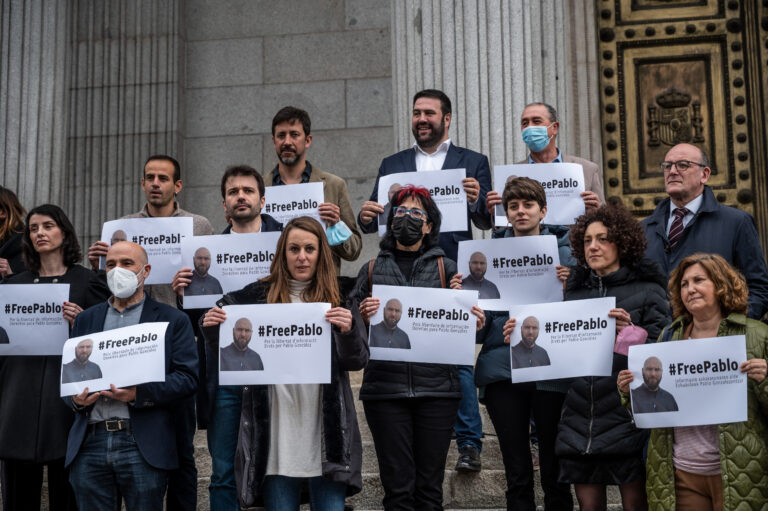The ECHR ruled "the restriction on the applicant's freedom of expression had not been proportionate to the potential seriousness of the damage to the reputation in question."
(WPFC/IFEX) – Washington, USA, June 1, 2010 – The World Press Freedom Committee (WPFC) of Freedom House – an umbrella organization representing 45 press freedom groups from throughout the world – applauds the European Court of Human Rights’ decision vindicating Spanish journalist José Luis Gutiérrez and chastising the Spanish State for violating Article 10 of the European Convention.
Article 10 protects the rights of freedom of expression and freedom of the press. The Court today ruled “the restriction on the applicant’s freedom of expression had not been proportionate to the potential seriousness of the damage to the reputation in question.”
The case started back in 1995 when the now-defunct Diario 16 newspaper published a story under the headline “A family company belonging to Hassan II implicated in drug trafficking” about the police seizure of close to 5 tons of hashish hidden in a truck belonging to Domaines Royaux, property of the Moroccan royal family.
In 1997, the Moroccan Royal Crown filed a suit in a Madrid court against the writer of the article, Rosa María López, the editor-in-chief of Diario 16, Mr. Gutiérrez, and the publishing company, alleging that the article had “interfered with the fundamental right to respect for the king’s reputation”. The court ruled in favour of the plaintiff, sentencing Mr. Gutiérrez and Diario 16 to pay a fine and publish the ruling in the newspaper. Once the newspaper went bankrupt, Mr. Gutiérrez remained the sole defendant.
He appealed three times, including to the country’s top court, the Constitutional Tribunal, but they all upheld the original ruling regardless of despite the overwhelming support Gutiérrez garnered from international press freedom organizations, including WPFC.
Finally, in 2007, he took his civil insult case to the European Court of Human Rights with the support of WPFC – which submitted an amicus curiae brief on his behalf – and several other members of the Coordinating Committee of Press Freedom Organizations, such as the Committee to Protect Journalists, the International Press Freedom Institute, the World Association of Newspapers and the Inter-American Press Association.
The Court’s ruling is unequivocal in its support for Mr. Gutiérrez’s fundamental right to free speech, stating that, “The information in question was a matter of general interest. The Spanish public had the right to be informed about drug trafficking in which the Moroccan royal family appeared to be involved, a matter that had moreover been the subject of an investigation before the Spanish criminal courts.”
Also, noting that the Spanish courts took issue with the way the article’s headline was written, the Court pointed out that “it was not its task, or that of the domestic courts, to determine which journalistic techniques should be used and that journalistic freedom covered recourse to a degree of exaggeration.”
The ruling also rejects the Spanish courts’ notion that the journalist was obligated to research the story further on her own.
“Furthermore,” the ruling reads, “the author of the article had made reference to information available to her at the time. Provided that journalists acted in good faith and that the information imparted was true, they could not be expected – at the risk of compromising the vital role of ‘public watchdog’ of the press – to undertake independent research.”
“We welcome the ECHR decision as a vindication for Mr. Gutiérrez, who has been the target of a judicial harassment for 15 years,” said WPFC’s Projects Director Javier Sierra. “We find it outrageous that it took such a long period of time and a reprimand from the European Court for Mr. Gutiérrez finally to get justice. We hope the Spanish State will learn this lesson and start once and for all reforming the obsolete laws that were used to sentence Mr. Gutiérrez.”
Those statutes are the 1982 Protection of Honor Law, which includes the law of civil insult, and the 1966 Press and Printing Law, which was inherited from the Franco dictatorship. Even though the spirit and the letter of both laws contravene internationally accepted press freedom standards, they both remain in the books as a Damocles sword hanging over the heads of Spanish journalists.
“This sentence is an excellent show of support for press freedom and freedom of expression,” said Mr. Gutiérrez. “And it comes out precisely when the concept of press freedom is the target of so many totalitarian and undemocratic forces. It also agrees with all the press freedom and human rights organizations that supported me and denounced the laws that were used to indict me, including Franco’s Press and Printing Law. I thank all of them, starting with the World Press Freedom Committee, the first one who supported me, the International Press Institute and the rest of the members of the Coordinating Committee of Press Freedom Organizations who backed me up at the European Court.”


